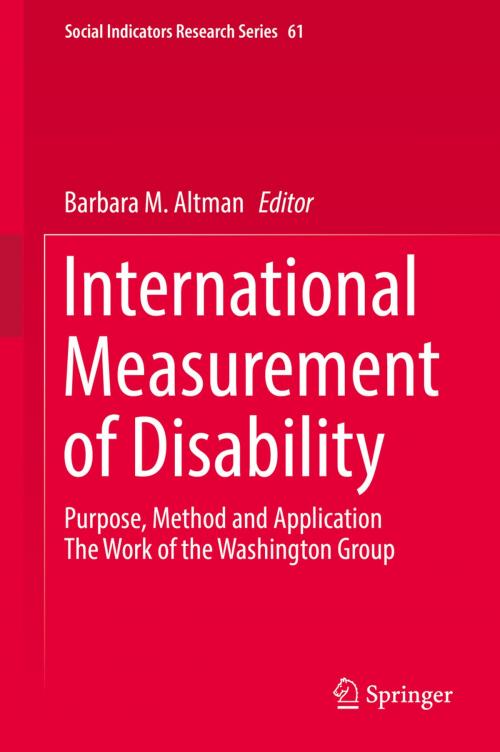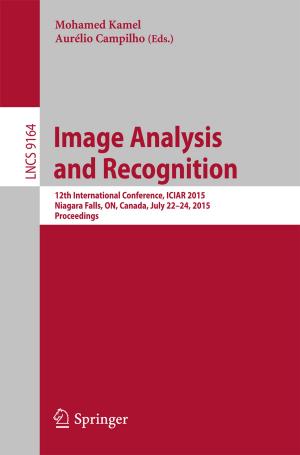International Measurement of Disability
Purpose, Method and Application
Nonfiction, Health & Well Being, Medical, Reference, Public Health, Social & Cultural Studies, Social Science, Sociology| Author: | ISBN: | 9783319284989 | |
| Publisher: | Springer International Publishing | Publication: | June 14, 2016 |
| Imprint: | Springer | Language: | English |
| Author: | |
| ISBN: | 9783319284989 |
| Publisher: | Springer International Publishing |
| Publication: | June 14, 2016 |
| Imprint: | Springer |
| Language: | English |
This volume provides an informed review of the accomplishments of the Washington Group on Disability Statistics (WG) in the provision of international data and statistics on disability. It does so within the context of the UN Convention on the Rights of Persons with Disabilities. The volume includes a description of the development and testing of a short set of questions for Censuses, now used in approximately 29 countries and recommended in the U.N.’s Principles and Recommendations for Population and Housing Censuses: The 2020 Round, which includes disability as a core topic to be collected in censuses. It discusses the experiences of several countries on the use of the WG questions and how this has impacted on national agendas in the area of disability. It follows the development and testing of an extended set of questions for use in national surveys other than censuses and examines the challenges of translation and the importance of generating comparable question sets in different languages and within different cultures. It studies the examination of cognitive testing techniques in a variety of countries, and presents the results of the first round of censuses in 2010 in countries using the six question set. The volume includes discussions of the new development of question modules on a broad range of child disability and functioning, and the environmental contexts of participation that are part of the current work of the WG. In addition, it contains a reflection on the use of the WG’s functionality approach to identifying disabilities by humanitarian agencies to identify disabilities in populations of displaced persons. A thoughtful conclusion addresses what the development of cross-nationally comparable data can mean for the improvement of circumstances for all persons with disabilities.
This volume provides an informed review of the accomplishments of the Washington Group on Disability Statistics (WG) in the provision of international data and statistics on disability. It does so within the context of the UN Convention on the Rights of Persons with Disabilities. The volume includes a description of the development and testing of a short set of questions for Censuses, now used in approximately 29 countries and recommended in the U.N.’s Principles and Recommendations for Population and Housing Censuses: The 2020 Round, which includes disability as a core topic to be collected in censuses. It discusses the experiences of several countries on the use of the WG questions and how this has impacted on national agendas in the area of disability. It follows the development and testing of an extended set of questions for use in national surveys other than censuses and examines the challenges of translation and the importance of generating comparable question sets in different languages and within different cultures. It studies the examination of cognitive testing techniques in a variety of countries, and presents the results of the first round of censuses in 2010 in countries using the six question set. The volume includes discussions of the new development of question modules on a broad range of child disability and functioning, and the environmental contexts of participation that are part of the current work of the WG. In addition, it contains a reflection on the use of the WG’s functionality approach to identifying disabilities by humanitarian agencies to identify disabilities in populations of displaced persons. A thoughtful conclusion addresses what the development of cross-nationally comparable data can mean for the improvement of circumstances for all persons with disabilities.















